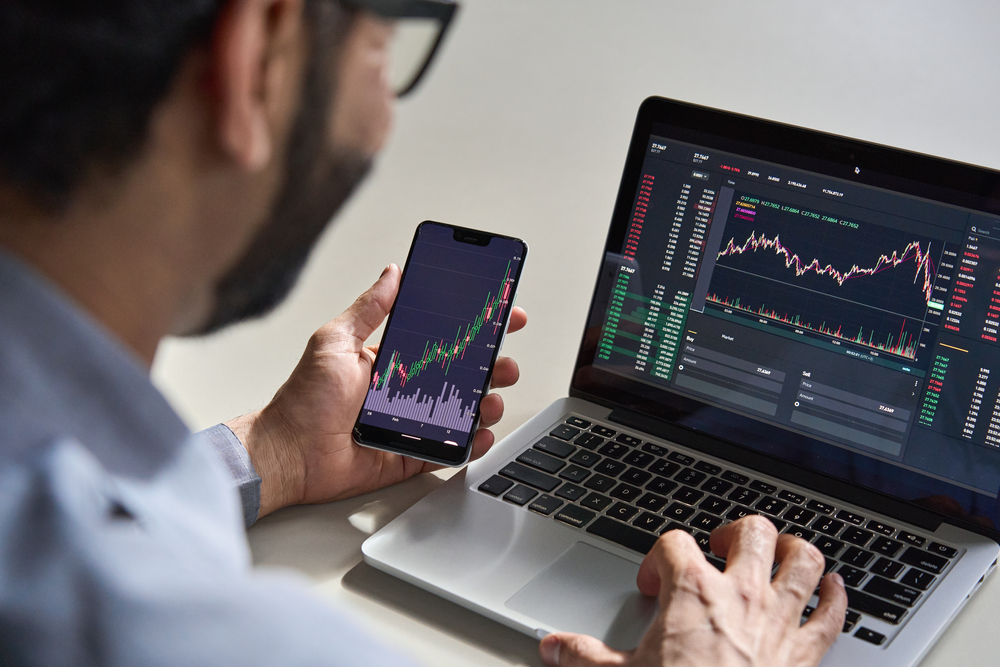Thinking about putting your money to work but feeling lost? Don’t worry, you’re not alone. There are lots of ways to invest, and it can be confusing to figure out what’s what. Let’s talk about three popular options: stocks, futures, and mutual funds. Each one is unique, with its own strengths and weaknesses. In this post, we’ll break down these three in plain English, so you can feel more confident about choosing where to put your hard-earned cash.
Understanding Stocks
What Are Stocks?
Stocks represent ownership in a company. When you buy a stock, you become a part-owner of the company, so you get a share of its profits and losses. Companies issue stocks to raise capital for growth and expansion.
Types of Stocks
Companies offer two main kinds of stocks: common and preferred. If you own common stock, you usually get to vote on big company decisions. Plus, when the company makes money, they might share some of those profits with you. We call these shared profits ‘dividends’ – think of them as a thank-you gift for believing in the company. On the other hand, preferred stockholders typically do not have voting rights but receive dividends before common stockholders and have a higher claim on assets if the company is liquidated.

Benefits and Risks of Stocks
Investing in stocks can offer substantial returns over time, especially if the company performs well. Keep in mind that stock prices can go up and down quite a bit, like a rollercoaster. This means you could make a good chunk of money, but you could also lose some. That’s why it’s really important to do your homework before picking stocks, so you can make smarter choices with your money.
Understanding Futures
What Are Futures?
Futures are like promises to buy or sell something later, where you agree on the price now but only exchange the item on a set date in the future. These contracts are commonly used for commodities, such as oil, gold, or agricultural products, but can also apply to financial instruments like currencies or stock indexes.
How Futures Work
When you enter a futures contract, you agree to either buy or sell the underlying asset at the specified price when the contract expires. If the market price rises above your contract price, you can make a profit. Conversely, if the price drops, you may incur losses. Futures trading can be done through exchanges and requires a margin, which is a percentage of the contract’s value that must be deposited.
Benefits and Risks of Futures
One of the primary benefits of futures is the potential for high returns, as they allow investors to control large amounts of an asset with a relatively small initial investment. However, futures are highly risky. They can lead to significant losses, especially for inexperienced traders. Before you jump into futures trading, it’s really important to get a good grasp on how the market works and have some solid game plans in place. You wouldn’t want to dive into the deep end without knowing how to swim, right?
Understanding Mutual Funds
What Are Mutual Funds?
Think of mutual funds like a group savings plan. A bunch of people put their money together in one big pot. Then, smart money managers use that pot to buy a mix of different investments, like pieces of companies or loans to governments. This way, even if you don’t have a lot of money yourself, you can own a small slice of many different investments. It’s like going in on a big pizza with friends – you get to try more toppings than if you bought a personal pizza alone.
Types of Mutual Funds
There are various types of mutual funds, including:
– Think of equity funds as pools of money that buy pieces of different companies. They’re like planting seeds that you hope will grow into big trees over time. The goal is to see your money increase as these companies become more valuable in the future.
– Bond Funds: These focus on fixed-income investments, such as government or corporate bonds, and aim to provide regular income.
– Balanced Funds: These invest in a mix of stocks and bonds, providing both growth and income.
– Index Funds: These aim to replicate the performance of a specific market index, such as the S&P 500, by investing in the same stocks in the same proportions.
Benefits and Risks of Mutual Funds
Mutual funds offer diversification, which can reduce risk. Since your investment is spread across various securities, the impact of a single underperforming asset is minimized. Additionally, mutual funds are managed by professionals who make investment decisions on your behalf.
However, mutual funds also come with fees, which can eat into your returns. These fees may include management fees, sales charges, and operating expenses. Moreover, mutual funds can be less flexible than other investments, as they are traded only at the end of the trading day.
Key Differences Between Stocks, Futures, and Mutual Funds
Ownership and Structure
– Stocks: When you buy stocks, you own a piece of the company.
– Futures: Futures are contracts, not ownership. You are agreeing to buy or sell an asset in the future.
– Mutual Funds: Investing in mutual funds means you own shares in a pool of investments managed by professionals.
Risk and Volatility
– Stocks: Stocks can be volatile, with prices changing frequently based on market conditions.
– Futures: Futures carry a high level of risk due to their potential for significant losses if the market moves against you.
– Mutual Funds: Mutual funds generally offer lower risk through diversification, but they are still subject to market fluctuations.

Management
– Stocks: Investors manage their own stock portfolios.
– Futures: Futures trading typically requires expertise and is often best left to experienced traders.
– Mutual Funds: Mutual funds are managed by professionals, allowing investors to benefit from expert management.
Fees and Costs
– Stocks: Buying stocks may incur brokerage fees but typically have lower ongoing costs.
– Futures: Futures involve margin requirements and trading fees.
– Mutual Funds: Mutual funds usually come with various fees that can affect overall returns.
To conclude, understanding the differences between stocks, futures, and mutual funds is crucial for making informed investment decisions. Each option comes with its unique features, benefits, and risks. Stocks offer ownership in companies and the potential for significant returns, while futures allow for high leverage but come with increased risk. Mutual funds are like investment baskets managed by experts. They spread your money across different investments, which helps reduce risk. That’s why many people find them an attractive way to grow their savings.
*Note- “Before investing, it’s essential to consider your financial goals, risk tolerance, and the time you can commit to managing your investments. By doing so, you can create a balanced portfolio that aligns with your investment strategy and helps you achieve your financial objectives.”
